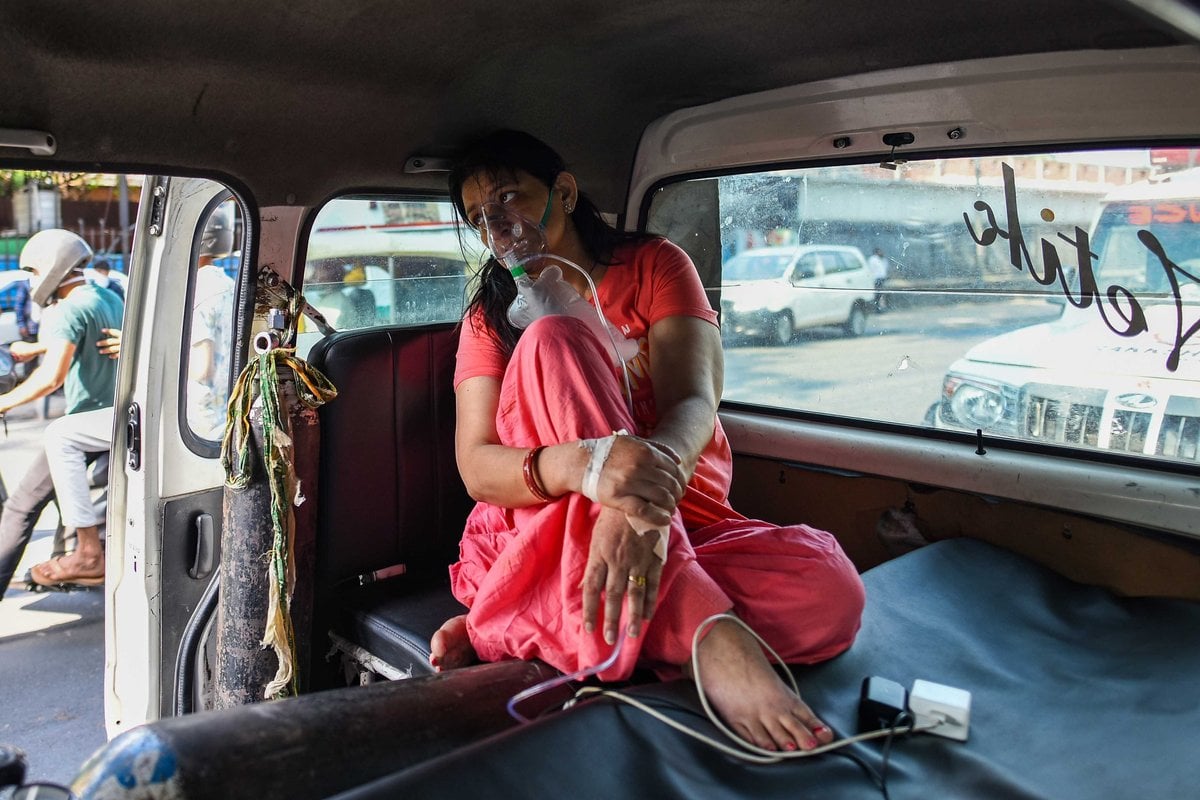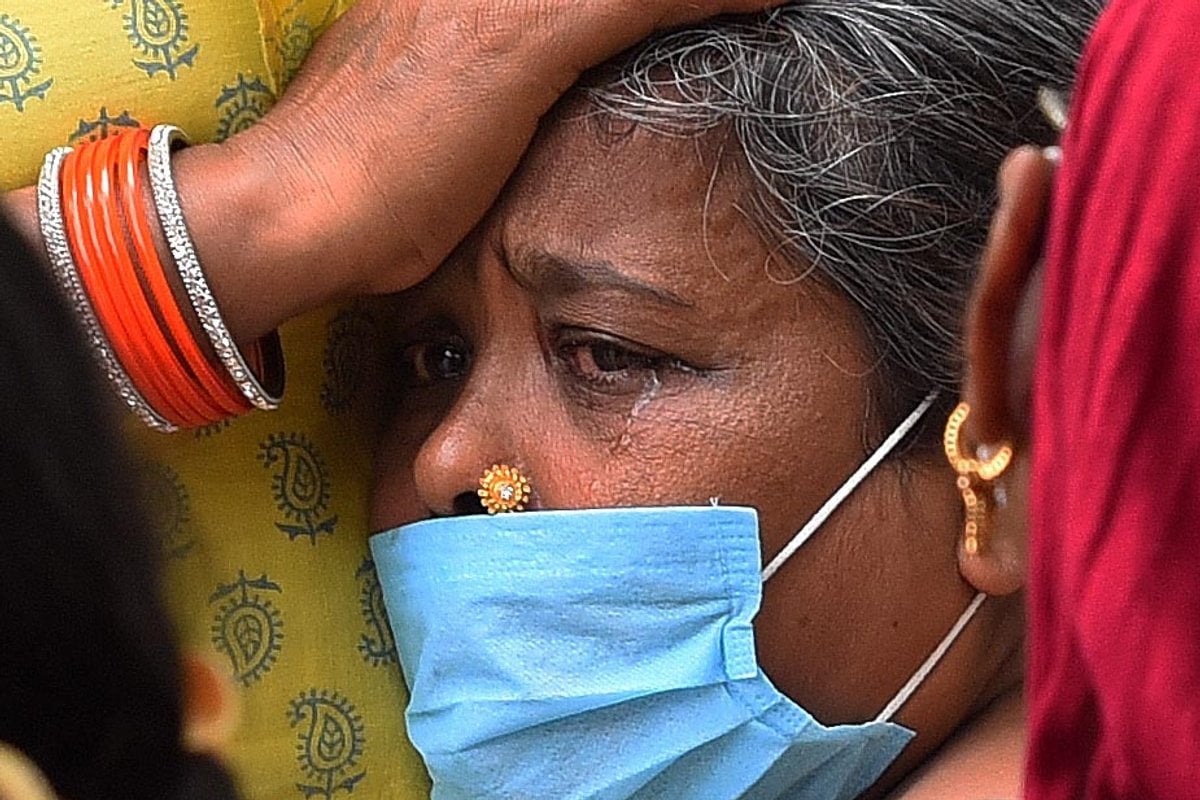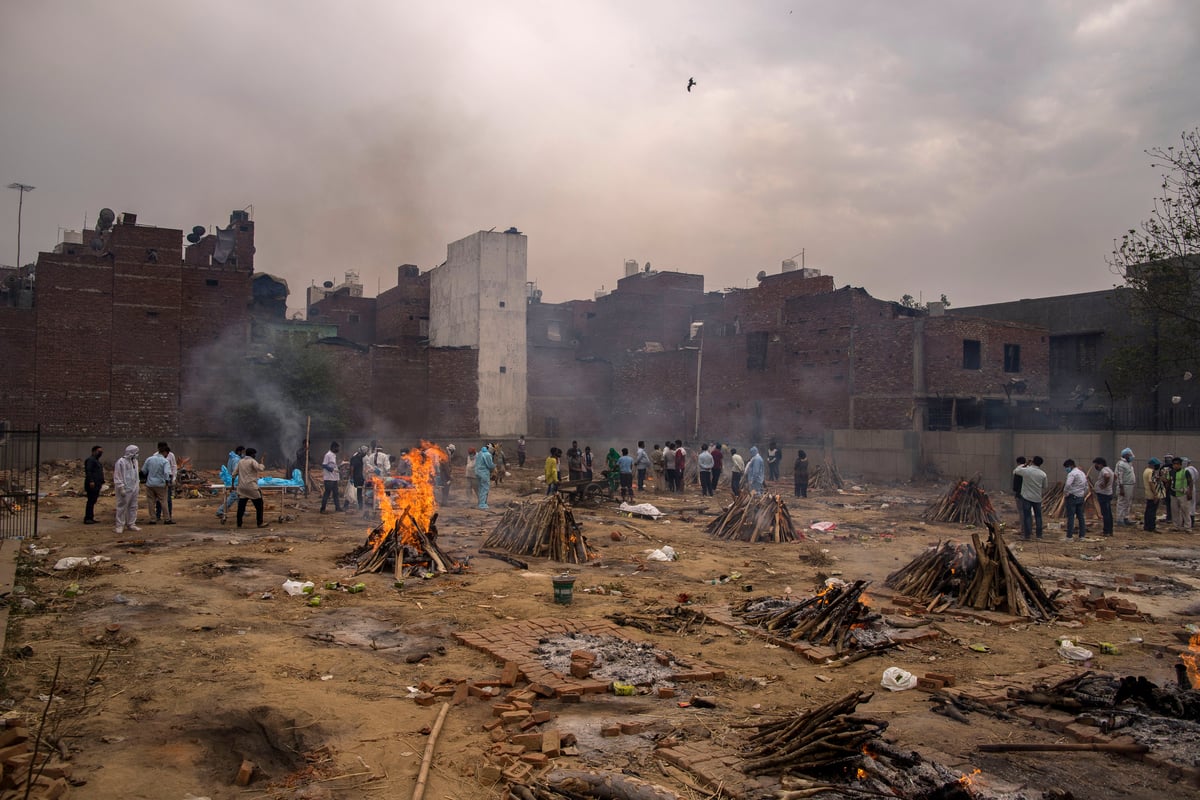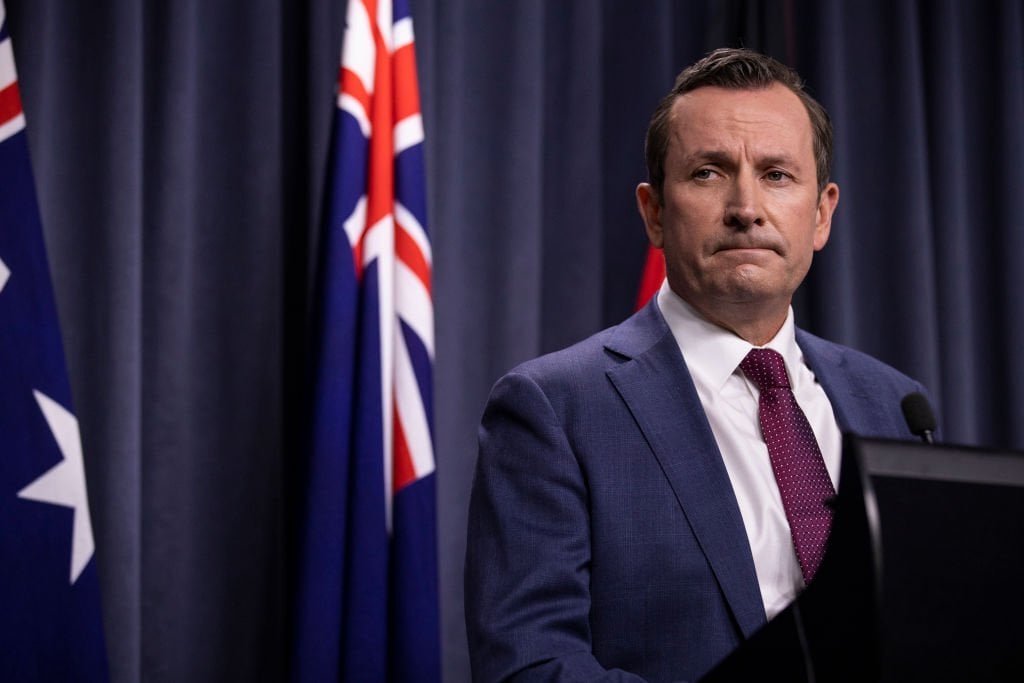
India continues to set global records for daily infections of COVID-19, as the country deals with a catastrophic new strain that is overwhelming their under-funded hospitals.
On Friday, the country registered 386,000 cases, bringing their total to over 18 million known infections since the pandemic began. India is now the global epicentre of the pandemic, which is waning in many other countries as vaccine roll-outs bring down the rate new infections.
India's death toll is over 200,000 people, growing by more than 2,000 every day.



